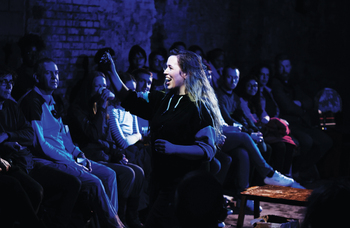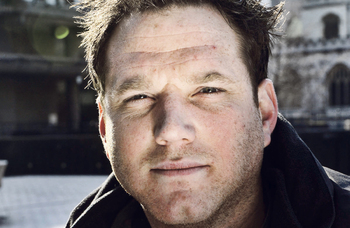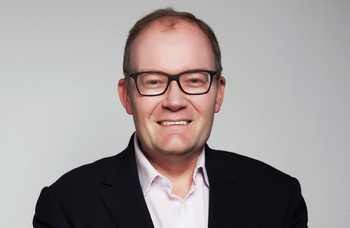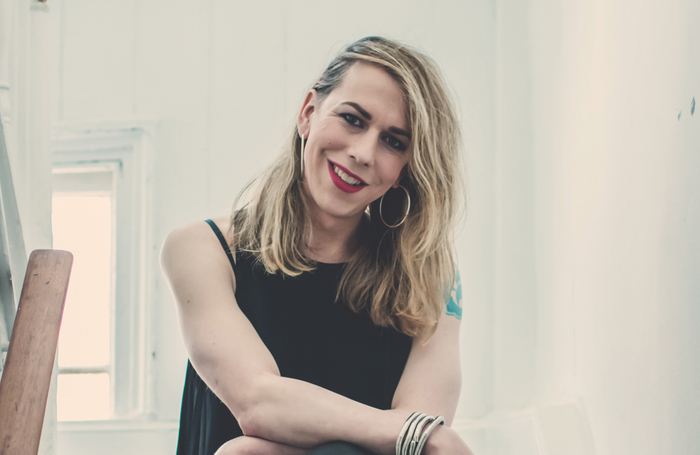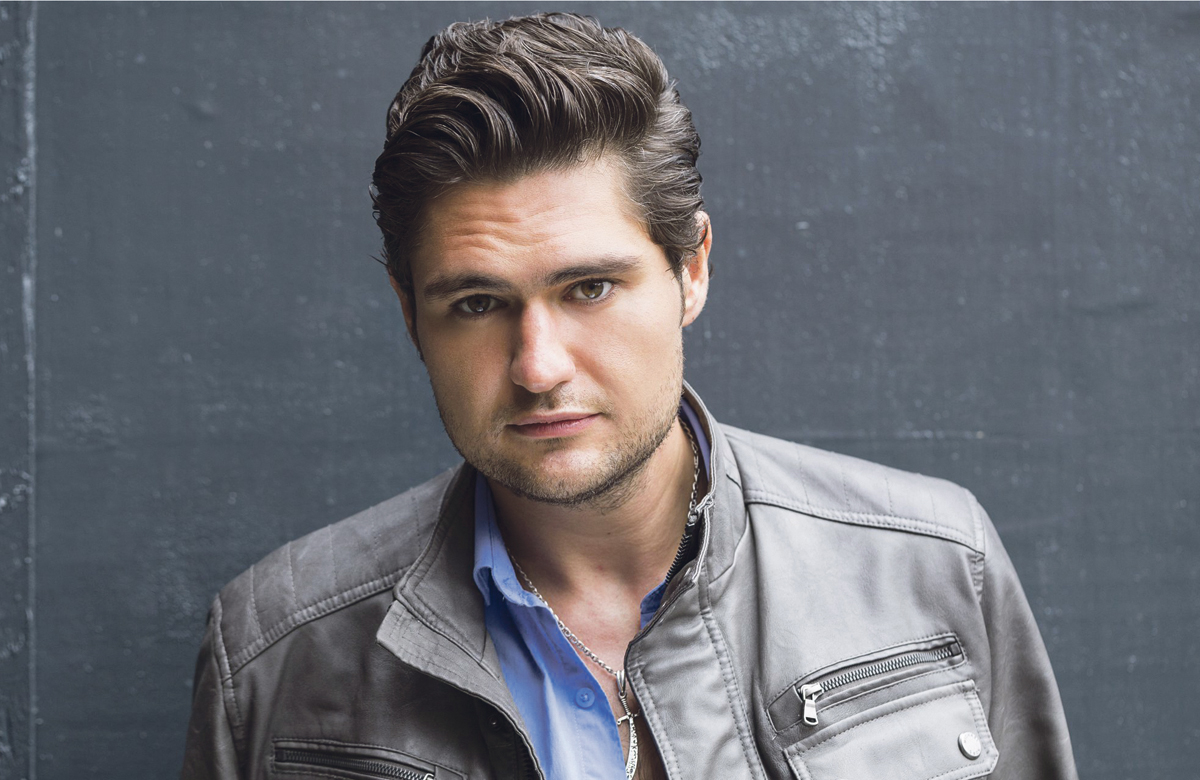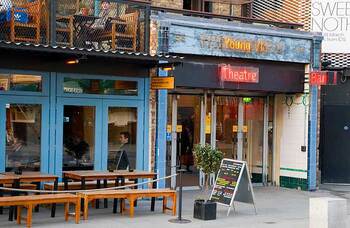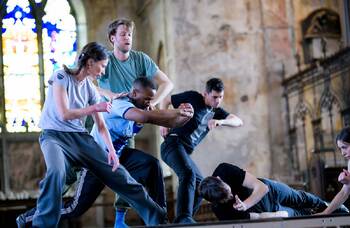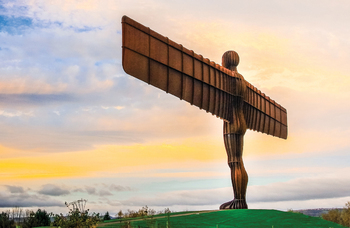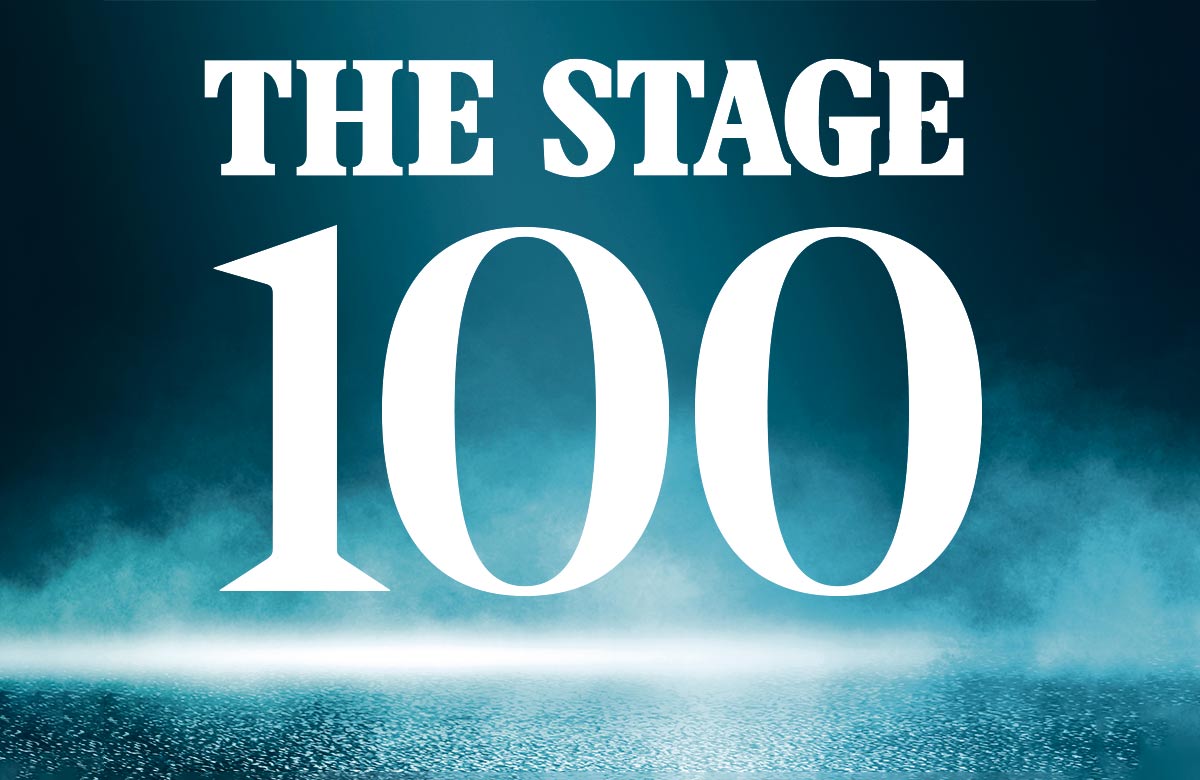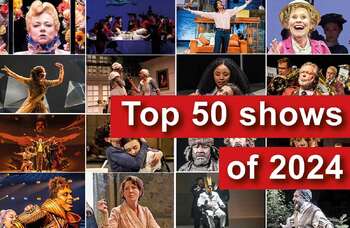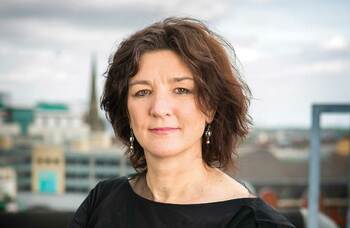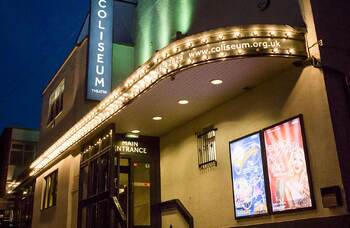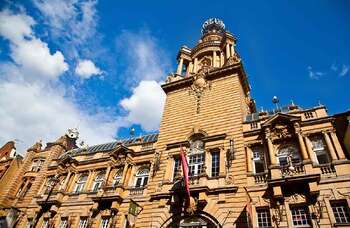
‘It’s not about surviving the next few months but the next few years’
In a special supplement titled ‘How the arts can survive the coronavirus crisis’, Lyn Gardner speaks to freelance theatremakers struggling to make ends meet and the artistic directors who are finding ways to support them
When freelance theatremaker Casey Jay Andrews arrived back in the UK from the Adelaide Festival on March 17, she should have been buoyant.
Her show, The Wild Unfeeling World, a one-woman re-imagining of Moby Dick, sold well and won a best theatre award at the festival. But she came back to the devastating news that an uncle had died of Covid-19, and word that a seven-month contract with a major theatre company had been pushed back to the end of the year.
“Financially, I’m in a bad position,” says Andrews. “I could justify the risk and money in taking a show to Adelaide because I was coming back to a long-term contract. But now I’m in a much more precarious situation.”
She is not alone. While the position that every self-employed artist finds themselves is dependent on individual circumstances, for some the theatre shutdown couldn’t have come at a worse moment.
Earlier this year, Emma Frankland, who makes work about gender and the politics of transition, took a bank loan to fund an exceptional talent work visa for the US. This was on the back of being invited on a theatre tour of Welcome to Night Vale, a podcast about a fictional US town, in which Frankland plays a regular character.
"It is a scary time for everyone, and especially those who don’t have the luxury of being an NPO"
The tour would pay off the loan and then she would have a visa to take advantage of work opportunities in the US over the next two years. Instead, she arrived in New York on the afternoon of the Broadway shutdown; the tour was cancelled, and she had to buy a new ticket to return home immediately. “It was a long way to go to eat a piece of pie,” Frankland says drily.
The debt to the bank will still have to be paid and future work, including a tour of her admired 2019 Edinburgh show, Hearty, looks uncertain.
“I’m a pretty established artist,” says Frankland, “but, like many in my position I’m high in experience but low in income.” Like many freelance artists facing a cash-flow crisis, even if Frankland can hold out until June when the government scheme for the self-employed pays out, there is not going to be a huge injection of cash into her bank account. She will apply to the £50 million fund set aside by Arts Council England to help freelance workers (in Scotland there is a £2 million bridging bursary fund available from Creative Scotland) but knows that so too will many others.
Frankland thinks call-outs for artists to make work in lockdown, securing small sums to do so, can be helpful, but she is also brutally honest about these opportunities.
“My panic about money leaves me thinking what I can get away with making, rather than taking the time to think about the work I have a passion for making. I suspect there are many who feel the same.”
Javaad Alipoor says he is in a fortunate position because his company Northern Lines recently received ACE Elevate money to develop its organisational resilience. But, like everyone else, his freelance projects have been cancelled or postponed including the tour of Rich Kids: A History of Shopping Malls in Tehran, which should have been at Battersea Arts Centre as part of its Going Global season.
“Nobody who was working on it lost out financially,” says Alipoor, “and I will use the time to think about how there could be a digital version, but it is a scary time for everyone, and especially those who don’t have the luxury of being an NPO.”
There are plenty of things the theatre shutdown has highlighted about the industry, but one of the most potentially divisive is that it has shown up the huge gulf between the salaried and the freelance. While many working in theatres are furloughed with 80% of their salary still paid, the freelance artists – who make the art and community work without which those buildings have no purpose – are struggling.
"None of us know what the landscape will look like in the future"
“There is a big divide between people working in organisations and the artists, and this moment has tested who has security and who doesn’t in a very stark way,” says David Byrne, artistic and executive director of London’s New Diorama. Byrne has set up an initiative, supported by major theatres across the country, to help artists apply to the ACE fund for freelance workers, many of whom will not have previously made an application via the funding body’s Grantium web portal. “We’re doing what we can to ensure the inexperienced answer the questions in a way that makes sense and don’t say something that renders them ineligible.”
But some say they don’t have the emotional energy to make an application, and in any case the £50 million will only stretch so far. Many will have to look elsewhere to benevolent funds such as the Equity Charitable Trust, the Theatrical Guild,
for backstage and front-of-house workers, the Dance Professionals Fund or Outdoor Arts UK. Even applying for Universal Credit takes focus and time.
Many feel bereaved, fearing the end of careers and looming homelessness as not just theatre work, but part-time jobs as bar staff, duty officers or ushers have dried up too. Some, well into their 30s, have given notice on housing and returned to the family home whether in the UK or abroad as contracts have been cancelled. Some may find it hard to restart.
Yet more are pondering their futures, including Polish theatremaker Nastazja Somers who says: “I’d been thinking about leaving the UK for a while and the shutdown may be the thing that pushes me, because it’s not just about surviving the next few months but the next few years when there will be less money and theatres will take fewer risks.”
Disabled director John R Wilkinson says he’s lucky because a part-time attachment to the Theatre Royal York means he has some income from furlough, but speaks for many freelance workers when he mourns his career losing momentum.
“It felt as if I had got to the point where I was on some kind of trajectory and that’s suddenly curtailed. None of us know what the landscape will look like in the future. As a freelance worker you have to keep knocking on doors, but I’m worried I’ll look vulgar if I keep reaching out at a time when theatres face their own problems.”
Freelance artists are used to getting by in adversity, but options are limited. In the past, they might sublet their room for a few weeks and sofa surf with friends to see them through lean patches, but that’s currently impossible. In addition to slashed income, some also face significant ongoing costs including storage for sets and props for shows they hoped might go out on tour again. Designers are paying for storage and studio space and subscriptions to essential software. High over heads often mean reduced profits, which means many do not expect to see much benefit from Rishi Sunak’s scheme for the self-employed. Many theatre freelances are low-earners who do not make much profit.
“Everything I was supposed to be doing up to and including August has been cancelled,” says designer Josh Gadsby.
“I’ll be okay for a couple of months but after that it’ll be hard. For early-career designers it’s going to be more difficult still. Anyone from lower socio-economic backgrounds won’t have the safety nets to bounce back.”
Another designer, Naomi Kuyck Cohen, agrees, and worries the landscape will be damaged beyond repair with tightened funding impacting on fringe activity, where many start their careers.
But it is not just those starting out, or the young who are affected. Theatremaker and actor Silvana Maimone has decades of experience and has always self-funded her projects through acting, facilitating and part-time jobs. She is 54 and has gone overnight, like many freelance workers, from feeling her situation was precarious but manageable to having no income at all.
“I’m used to living frugally,” says Maimone, “but you can’t live, even frugally, on nothing. There is a feeling that if you are an artist and you love what you do that should be enough, but that sends out the message that there is no value in what we do. I know there is. But at the moment I have to keep reminding myself of that every day because otherwise I have no hope at all.”
This content is supported by Arts Council England
‘Supported by’ is used to describe editorially independent content. Supporters may suggest the subject that is covered, but have no say in the editorial produced, which is written and edited by The Stage’s journalists to the same standard as all our editorial, with no copy approval given.
Opinion
Recommended for you
More about this person
More about this venue
Opinion
Recommended for you
Most Read
Across The Stage this weekYour subscription helps ensure our journalism can continue
Invest in The Stage today with a subscription starting at just £5.99
